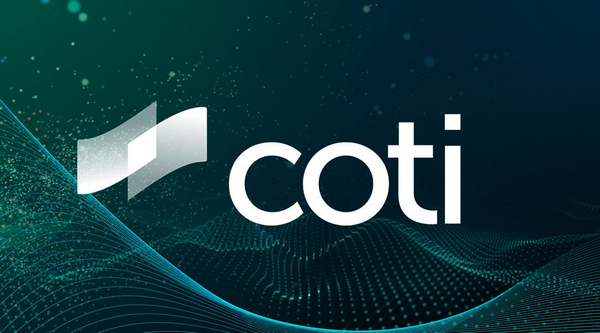-
 Bitcoin
Bitcoin $97,038.4312
2.25% -
 Ethereum
Ethereum $1,848.8743
1.95% -
 Tether USDt
Tether USDt $1.0001
0.00% -
 XRP
XRP $2.2234
0.36% -
 BNB
BNB $602.6126
0.23% -
 Solana
Solana $150.7669
0.92% -
 USDC
USDC $0.9998
-0.02% -
 Dogecoin
Dogecoin $0.1828
4.44% -
 Cardano
Cardano $0.7144
3.26% -
 TRON
TRON $0.2443
-1.18% -
 Sui
Sui $3.5186
0.23% -
 Chainlink
Chainlink $14.9164
1.96% -
 Avalanche
Avalanche $21.9682
3.68% -
 Stellar
Stellar $0.2764
1.20% -
 UNUS SED LEO
UNUS SED LEO $8.9391
-2.03% -
 Toncoin
Toncoin $3.2421
1.58% -
 Shiba Inu
Shiba Inu $0.0...01360
1.42% -
 Hedera
Hedera $0.1877
2.10% -
 Bitcoin Cash
Bitcoin Cash $369.1441
-0.18% -
 Litecoin
Litecoin $89.8465
6.19% -
 Hyperliquid
Hyperliquid $20.2598
2.63% -
 Polkadot
Polkadot $4.2361
2.88% -
 Dai
Dai $0.9998
-0.03% -
 Bitget Token
Bitget Token $4.3977
0.78% -
 Monero
Monero $272.1532
-3.35% -
 Ethena USDe
Ethena USDe $1.0005
0.00% -
 Pi
Pi $0.6002
-4.39% -
 Pepe
Pepe $0.0...08842
-1.38% -
 Aptos
Aptos $5.5441
2.32% -
 Uniswap
Uniswap $5.3502
0.40%
One article to understand what COTI is and which country COTI is from
COTI, an Israeli-based blockchain network, revolutionizes enterprise financial services with its efficient transaction processing, multiDAG structure, and robust identity verification system, supported by its native token COTI.
Nov 02, 2024 at 10:11 pm

Understanding COTI: A Blockchain Network from Israel
1. What is COTI?
COTI is a decentralized blockchain network designed specifically for enterprise-level financial services. It aims to provide efficient and secure payment processing, identity verification, and other financial operations with minimal transaction fees.
2. Unique Features of COTI
- TrustChain Protocol: A consensus mechanism that enables rapid and scalable transaction processing, supporting up to 10,000 transactions per second.
- MultiDAG Structure: A novel data storage technique that enhances efficiency and prevents double-spending.
- Universal Payment Gateway: A seamless payment solution that supports multiple currencies and payment methods, including cryptocurrencies and fiat currencies.
- Identitiy Verification System: A robust system for validating identities and preventing fraud.
3. COTI's Native Token: COTI
The COTI network utilizes its native cryptocurrency, COTI, for various purposes:
- Transaction Fees: COTI is used to pay transaction fees on the network.
- Node Staking: COTI holders can stake their tokens to operate consensus nodes and earn rewards.
- Governance: COTI token holders have governance rights and can participate in decision-making related to the network's development.
4. Country of Origin: Israel
COTI is a company headquartered in Israel. It was founded in 2017 by a team of experienced blockchain and fintech professionals. COTI's technical team has a track record of developing innovative blockchain solutions for various industries.
5. Collaborations and Partnerships
COTI has formed numerous strategic partnerships with renowned companies, including:
- Cardano Foundation
- Visa
- Ripple
- Chainlink
- Amazon Web Services
These partnerships enable COTI to integrate its solutions with existing systems and expand its reach in the fintech ecosystem.
Conclusion
COTI is a cutting-edge blockchain network designed for enterprise-level financial services. Its unique features, native token, and strategic partnerships position it as a promising solution for the future of digital payments and financial operations. Based in Israel, COTI is a testament to the country's growing reputation as a hub for blockchain innovation.
Disclaimer:info@kdj.com
The information provided is not trading advice. kdj.com does not assume any responsibility for any investments made based on the information provided in this article. Cryptocurrencies are highly volatile and it is highly recommended that you invest with caution after thorough research!
If you believe that the content used on this website infringes your copyright, please contact us immediately (info@kdj.com) and we will delete it promptly.
- Arbitrum Launches Grant Misuse Bounty Program, Paying Up to $100k per Report
- 2025-05-02 11:05:12
- BlockDAG Crosses $223M and Extends Lead with Rewarding Presale
- 2025-05-02 11:05:12
- SUI Price Faces Key Test at $4.00 Resistance Level
- 2025-05-02 11:00:12
- Liquid Restaking Token (LRT) netflows have overturned movements after EigenLayer introduced its slashing mechanism
- 2025-05-02 11:00:12
- Bitcoin Breaks Above $96,000, Signalling a Potential Market Structure Shift
- 2025-05-02 10:55:12
- Dragoin Leads the Charge with 6,700% ROI Potential: Traders Earn $DDGN with Tap-to-Earn Game
- 2025-05-02 10:55:12
Related knowledge

What is Ethereum’s Slashing mechanism and how to punish malicious behavior?
Feb 20,2025 at 03:08am
Key PointsOverview of slashingDifferent types of slashing in EthereumIncentives and consequences of slashingIdentifying and reporting slashed validatorsOngoing discussions and potential improvementsEthereum's Slashing Mechanism: Punishing Malicious BehaviorEthereum's slashing mechanism is an essential tool for ensuring network security and punishing mal...

What is the verifier node of Ethereum and how to become a verifier?
Feb 19,2025 at 06:00pm
The Verifier Node of Ethereum: A Comprehensive GuideKey Points:What is a Verifier Node?How to Become a Verifier NodeResponsibilities and Rewards of a Verifier NodeMinimum Requirements for Becoming a Verifier NodePotential Difficulties in Running a Verifier Node1. What is a Verifier Node?A Verifier Node is an independent entity on the Ethereum network th...

What is Ethereum’s staking, and how to participate and earn money?
Feb 19,2025 at 04:37pm
Key Points:Understanding Ethereum's Staking MechanismSteps to Participate in StakingBenefits and Rewards of StakingSecurity and Risk ConsiderationsTechnical Requirements and Hardware OptionsPotential Challenges and Troubleshooting TipsFAQs on Ethereum StakingWhat is Ethereum's Staking?Proof-of-Stake (PoS) is a consensus mechanism used in blockchain netw...

What is Ethereum’s DAO (Decentralized Autonomous Organization) and how does it work?
Feb 20,2025 at 03:12am
Key PointsDefinition and Structure of a DAOGovernance and Decision-Making in DAOsBenefits and Use Cases of DAOsChallenges and Limitations of DAOsWhat is Ethereum's DAO (Decentralized Autonomous Organization) and How Does It Work?Definition and Structure of a DAOA Decentralized Autonomous Organization (DAO) is an innovative governance and management fram...

What is Ethereum's multi-signature wallet and how to improve security?
Feb 20,2025 at 02:18pm
Key Points:Understanding the Concept of a Multi-Signature WalletBenefits and Drawbacks of Multisig WalletsRequirements for Setting Up a Multisig WalletStep-by-Step Guide to Generating a Multisig WalletImplementing Strategies for Enhanced Security1. Understanding the Concept of a Multi-Signature WalletA multi-signature (multisig) wallet in the Ethereum e...

What is Ethereum's oracle and how to provide data for smart contracts?
Feb 21,2025 at 01:30am
Key Points:Understanding the concept of oracles in EthereumExploring different types of oraclesDetailed guide on how to provide data for smart contractsAddressing potential challenges and considerationsWhat is Ethereum's Oracle?Oracles are crucial components in the Ethereum ecosystem, enabling smart contracts to access real-world data and off-chain even...

What is Ethereum’s Slashing mechanism and how to punish malicious behavior?
Feb 20,2025 at 03:08am
Key PointsOverview of slashingDifferent types of slashing in EthereumIncentives and consequences of slashingIdentifying and reporting slashed validatorsOngoing discussions and potential improvementsEthereum's Slashing Mechanism: Punishing Malicious BehaviorEthereum's slashing mechanism is an essential tool for ensuring network security and punishing mal...

What is the verifier node of Ethereum and how to become a verifier?
Feb 19,2025 at 06:00pm
The Verifier Node of Ethereum: A Comprehensive GuideKey Points:What is a Verifier Node?How to Become a Verifier NodeResponsibilities and Rewards of a Verifier NodeMinimum Requirements for Becoming a Verifier NodePotential Difficulties in Running a Verifier Node1. What is a Verifier Node?A Verifier Node is an independent entity on the Ethereum network th...

What is Ethereum’s staking, and how to participate and earn money?
Feb 19,2025 at 04:37pm
Key Points:Understanding Ethereum's Staking MechanismSteps to Participate in StakingBenefits and Rewards of StakingSecurity and Risk ConsiderationsTechnical Requirements and Hardware OptionsPotential Challenges and Troubleshooting TipsFAQs on Ethereum StakingWhat is Ethereum's Staking?Proof-of-Stake (PoS) is a consensus mechanism used in blockchain netw...

What is Ethereum’s DAO (Decentralized Autonomous Organization) and how does it work?
Feb 20,2025 at 03:12am
Key PointsDefinition and Structure of a DAOGovernance and Decision-Making in DAOsBenefits and Use Cases of DAOsChallenges and Limitations of DAOsWhat is Ethereum's DAO (Decentralized Autonomous Organization) and How Does It Work?Definition and Structure of a DAOA Decentralized Autonomous Organization (DAO) is an innovative governance and management fram...

What is Ethereum's multi-signature wallet and how to improve security?
Feb 20,2025 at 02:18pm
Key Points:Understanding the Concept of a Multi-Signature WalletBenefits and Drawbacks of Multisig WalletsRequirements for Setting Up a Multisig WalletStep-by-Step Guide to Generating a Multisig WalletImplementing Strategies for Enhanced Security1. Understanding the Concept of a Multi-Signature WalletA multi-signature (multisig) wallet in the Ethereum e...

What is Ethereum's oracle and how to provide data for smart contracts?
Feb 21,2025 at 01:30am
Key Points:Understanding the concept of oracles in EthereumExploring different types of oraclesDetailed guide on how to provide data for smart contractsAddressing potential challenges and considerationsWhat is Ethereum's Oracle?Oracles are crucial components in the Ethereum ecosystem, enabling smart contracts to access real-world data and off-chain even...
See all articles





















































































